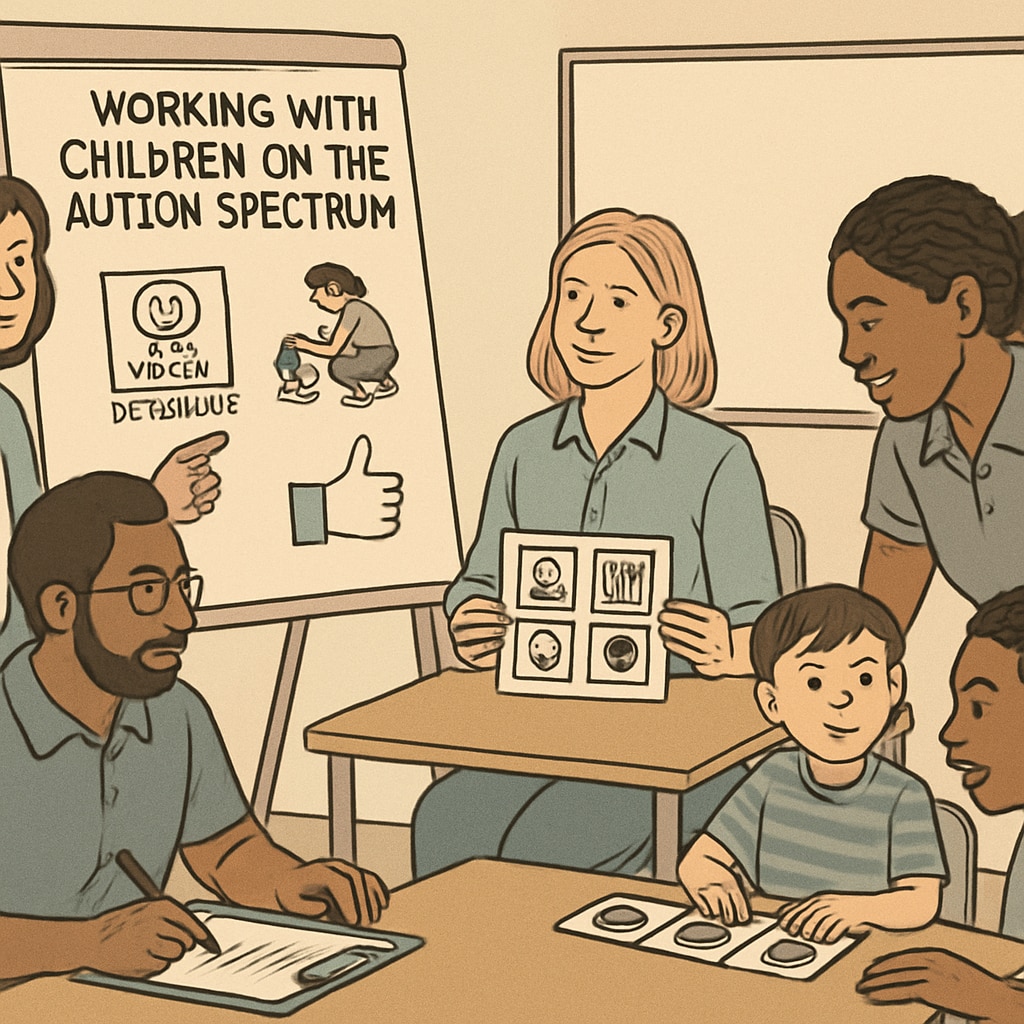Special education, autism, and teaching assistantship often intersect in a deeply fulfilling career path. For those aspiring to work with children on the autism spectrum, the role of a teaching assistant is both challenging and rewarding. This journey requires not just professional knowledge but also a profound sense of patience, empathy, and dedication. In this article, we delve into the core aspects of being a special education assistant, offering insights and preparation tips for individuals entering this meaningful field.
Understanding the Role of a Special Education Assistant
Special education assistants play a vital role in supporting children with diverse needs, particularly those on the autism spectrum. Their responsibilities go far beyond typical classroom assistance. They help create tailored learning environments, ensuring that every child has the opportunity to reach their fullest potential. This includes providing one-on-one support, assisting with social integration, and implementing strategies designed by special education teachers.
Key responsibilities often include:
- Facilitating communication for non-verbal or minimally verbal students.
- Providing emotional and behavioral support during challenging moments.
- Adapting lesson materials to suit individual needs.
- Collaborating with teachers, therapists, and parents to develop personalized education plans.
It’s important to note that successful special education assistants must be flexible and adaptable. Each child’s needs are unique, and the ability to adjust approaches on-the-fly is a critical skill.

Building Skills for Success in Special Education
Preparation is key to thriving as a teaching assistant in special education. Beyond academic qualifications, it’s essential to cultivate specific skills and qualities that align with the demands of this role. Here are some crucial areas to focus on:
- Patience: Children with autism often process information and respond to situations differently. Patience allows you to meet them at their pace without frustration.
- Empathy: Understanding the world from the perspective of a child on the spectrum fosters trust and strengthens your bond with them.
- Communication Skills: Verbal and non-verbal communication techniques are essential for connecting with children who may have limited speech capabilities.
- Problem-Solving: Quick thinking and creative solutions are invaluable when addressing unexpected challenges.
- Resilience: The role can be emotionally taxing, so maintaining a positive and balanced mindset is crucial.
In addition to personal development, aspiring assistants should seek professional training. Courses in Applied Behavior Analysis (ABA), communication strategies, or sensory integration can significantly enhance your ability to support children with autism effectively.

Preparing for the Emotional Journey
Working in special education is as much an emotional journey as it is a professional one. Teaching assistants often witness firsthand the struggles and triumphs of the children they support. While these experiences are deeply rewarding, they can also be emotionally intense. To prepare for this, consider the following tips:
- Find a Support System: Connect with colleagues or join professional networks for special education professionals. Sharing experiences can provide encouragement and practical advice.
- Practice Self-Care: Regularly engage in activities that help you recharge, such as exercise, meditation, or hobbies.
- Celebrate Small Wins: Progress in special education is often incremental. Recognize and celebrate even the smallest achievements to stay motivated.
- Seek Professional Development: Continuous learning not only improves your skills but also builds confidence in your ability to make a difference.
As a special education assistant, you have the unique privilege of helping children unlock their potential and achieve milestones that might otherwise seem out of reach. It’s a role that demands perseverance, but the rewards are immeasurable.
For more information on autism education and support, visit Autism Speaks or explore the resources available on Britannica’s autism spectrum disorder page.
In conclusion, stepping into the world of special education as a teaching assistant is both a professional and personal growth journey. With the right preparation, support, and mindset, you can make a meaningful impact on the lives of children with autism while discovering the profound strength of your own compassion.
Readability guidance: Use short paragraphs and lists to summarize key points; balance active and passive voice; and incorporate transitional words such as “however,” “therefore,” and “for example” throughout the article.


